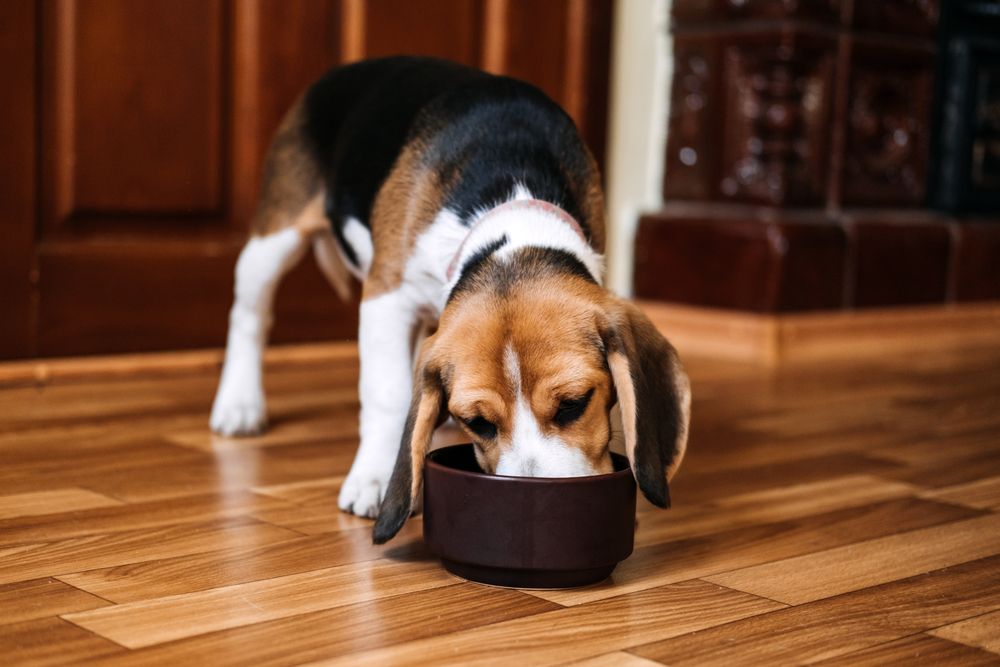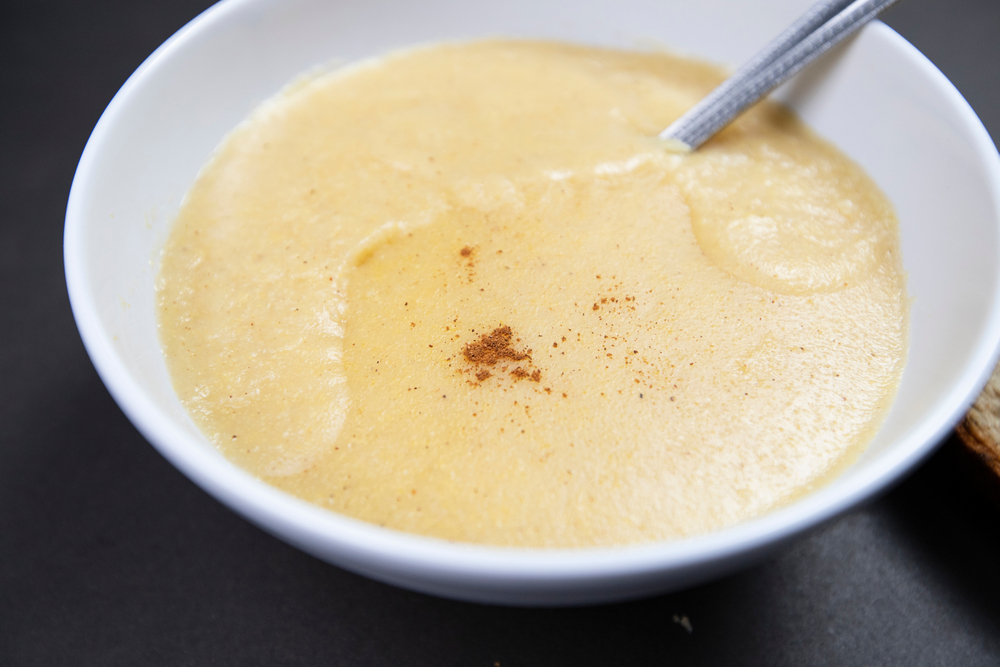In case you test the pet meals aisle in most pet shops, you may phrase an abundance of grain-free and wheat-free meals. There’s a fashionable notion that canines income from this sort of meals routine.
Whereas it’s unlikely {{{that a}}} canine would ingest wheat or completely totally different grains all through the wild, these are sometimes utilized in pet meals due to they will present some weight-reduction plan for canines. Specific allergic reactions or intolerance to wheat are loads a lot much less widespread than allergic reactions to animal-derived proteins. Normally, constructive, canines can eat wheat, however constructive breeds may want allergic reactions or intolerances higher than others. We dive deeper into this query beneath, so continue to learn to hunt out out additional.

Why Can Canines Eat Wheat?
A really small ratio of canines are illiberal to wheat, however allergic reactions and intolerances to completely totally different grains even are loads a lot much less widespread. In exact actuality, meals allergic reactions, sometimes, are uncommon in canines, and it’s believed that solely spherical 13% of canines with allergic reactions are illiberal to wheat.1
Whereas wheat is commonly described as being a filler, the time interval filler refers to low worth substances that do nothing however pad out the meals with out providing any dietary advantages. Wheat is principally a carbohydrate however it furthermore incorporates some protein, fiber, and minerals, which might current some weight-reduction plan to canines. Nevertheless, wheat protein by itself shouldn’t be an entire protein for canines so the meals formulation have to be balanced with completely totally different animal-derived proteins.
Sure breeds typically are inclined to have elements with wheat. The Irish Setters can endure a wheat-sensitive enteropathy whereas the Border Terriers are susceptible to rising a transferring dysfunction sometimes often called paroxysmal gluten-sensitive dyskinesia. So all through the case of those breeds a wheat-free, gluten-free meals routine is largest.


Wheat Supplies Vitality
Wheat is a present of carbohydrates that the canine’s physique can flip into glucose and use for vitality. Canines don’t require carbohydrates although, their our our our bodies are ready to naturally synthesizing glucose from proteins and fat of their carnivorous meals routine. Nevertheless when yours is an energetic or working canine, or a pregnant feminine, offering further carbs will assist guarantee they’re match and ready to performing their duties.
Grain-free meals typically use completely totally different sources of carbohydrates. Normally this implies along with potatoes and legumes.
Wheat In Canine Meals
Since pet meals grew to alter into commercially accessible, the most common means we feed wheat to canines is as a part of their dry meals. It is on account of forming the kibble devices requires starch, that is furthermore the rationale why typically dry meals is greater in carbohydrates than moist or present meals. In case you feed canned or moist meals, it’s a lot a lot much less additional extra prone to embrace as many alternative grains or inside the an similar quantity.
For lots of canines, nonetheless, it’s okay to resolve on a meals that comes with wheat so long as it affords a nutritionally full and balanced components. That is normally indicated on the label and is a press launch that ensures that your pup will get at least the minimal of all the dietary nutritional vitamins that they should assist their correctly being.
You may additionally uncover wheat flour in loads of canine treats. Nevertheless, it’s best to make the most of protein-based treats so as in order so as to add to their weight-reduction plan. As we talked about, dry meals diets are already excessive in carbohydrates. Similar to all through the case of kibble, in these treats, wheat flour is used primarily as a binder to assist in giving them a form.


Canines and Grain Allergic reactions
There are an excessive amount of grain-free canine meals on pet meals cabinets, however the overwhelming majority of canines don’t must keep away from grain, and excluding it from a particular meals normally means completely totally different carbohydrate sources are included.
Whereas we’d not have a actual quantity everybody is aware of that solely spherical a small quantity of canines have meals allergic reactions. And of these canines that do have meals allergic reactions, it’s additional potential they’re allergic to the protein of their meals, significantly than the carbohydrates. The most common allergic reactions in canines are as follows:
- Beef – 34%
- Dairy – 17%
- Hen – 15%
- Wheat – 13%
- Lamb – 5%
In case your canine shows any indicators of allergic reactions, akin to pores and pores and pores and skin situations, vomiting, or diarrhea, it is best to take a look at it contemplating furthermore completely totally different doable causes. Gastrointestinal upset may be launched on by sudden modifications in meals routine, as an illustration.
Environmental allergens akin to pollen mites, mud, and reactions to chemical compounds are way more widespread than meals allergic reactions, so ponder components much like the detergent you make the most of on their bedding and whether or not or not or not your canine comes into contact with any allergens whereas out all through the yard or on walks.
In case you concentrate on your canine has a wheat or completely totally different meals allergy, concentrate on to your vet. They may have the facility to advise an elimination meals routine or one totally different technique of figuring out most likely essentially the most perhaps allergen. And, if evidently your canine is allergic to or illiberal of wheat, your vet moreover should have the facility to advocate wheat-free meals likelihood.
💛 🐶 Converse To a Vet On-line From the Consolation of Your Sofa!


Whether or not it’s advisable discuss with a vet however can’t get to 1, head over to PangoVet. It’s an internet based service the place it is attainable you may concentrate on to a vet on-line and get the personalised recommendation you want in your pet — all at an pretty priced price!

Ceaselessly Requested Questions (FAQ)
Can Wheat Upset a Canine’s Abdomen?
Though it is vitally uncommon, some canines may be grain illiberal or allergic to wheat or completely totally different grains. In these circumstances, wheat could set off an upset abdomen with diarrhea and vomiting. Additionally it is doable for people who begin along with grain to your canine’s meals routine that they might endure an upset abdomen for people who introduce the mannequin new substances too shortly.
Introduce new meals step-by-step, along with a small quantity at a time. You presumably can enhance the quantity you feed over time, however an excessive amount of too quickly could set off diarrhea.


Can Canines Have Bread?
Wheat flour may be most likely essentially the most sometimes used ingredient to make bread, though some varieties use various kinds of flour. As such, and since most canines can safely eat wheat, plain bread is commonly protected and on no account poisonous for canines. Nevertheless, flour isn’t the one ingredient in bread.
Affirm for poisonous substances akin to raisins, onion, or garlic which might set off canines to get very ailing and even put their life in danger. Chances are you’ll uncover some breads embrace substances like sugar, along with way more to the carbohydrate load which might set off weight get hold of which might lastly result in weight points.
Can Canines Eat Cream of Wheat?
Cream of wheat is a porridge made out of milled wheat, significantly than oats. It’s typically eaten as a breakfast product by people, and the wheat part of the meals shouldn’t be poisonous to canines. Nevertheless, it’s normally eaten with further substances like honey, syrup, or sugar, all of which might result in weight get hold of in canines on account of variety of vitality they eat.
In case your canine eats a small quantity from a bowl, they need to be good, however you shouldn’t permit them to eat an excessive amount of, too normally.



 Conclusion
Conclusion
Wheat is a grain ingredient that’s present in an excessive amount of canine meals. Though it’s normally regarded as filler, wheat affords constructive dietary advantages to canines and, until your canine has notably been acknowledged with a wheat allergy, it isn’t prohibitive to be a part of your canine’s each day meals. Wheat allergic reactions are uncommon in canines, which suggests there is no motive to keep away from meals that embrace it until they’re delicate or allergic to it.
Featured


